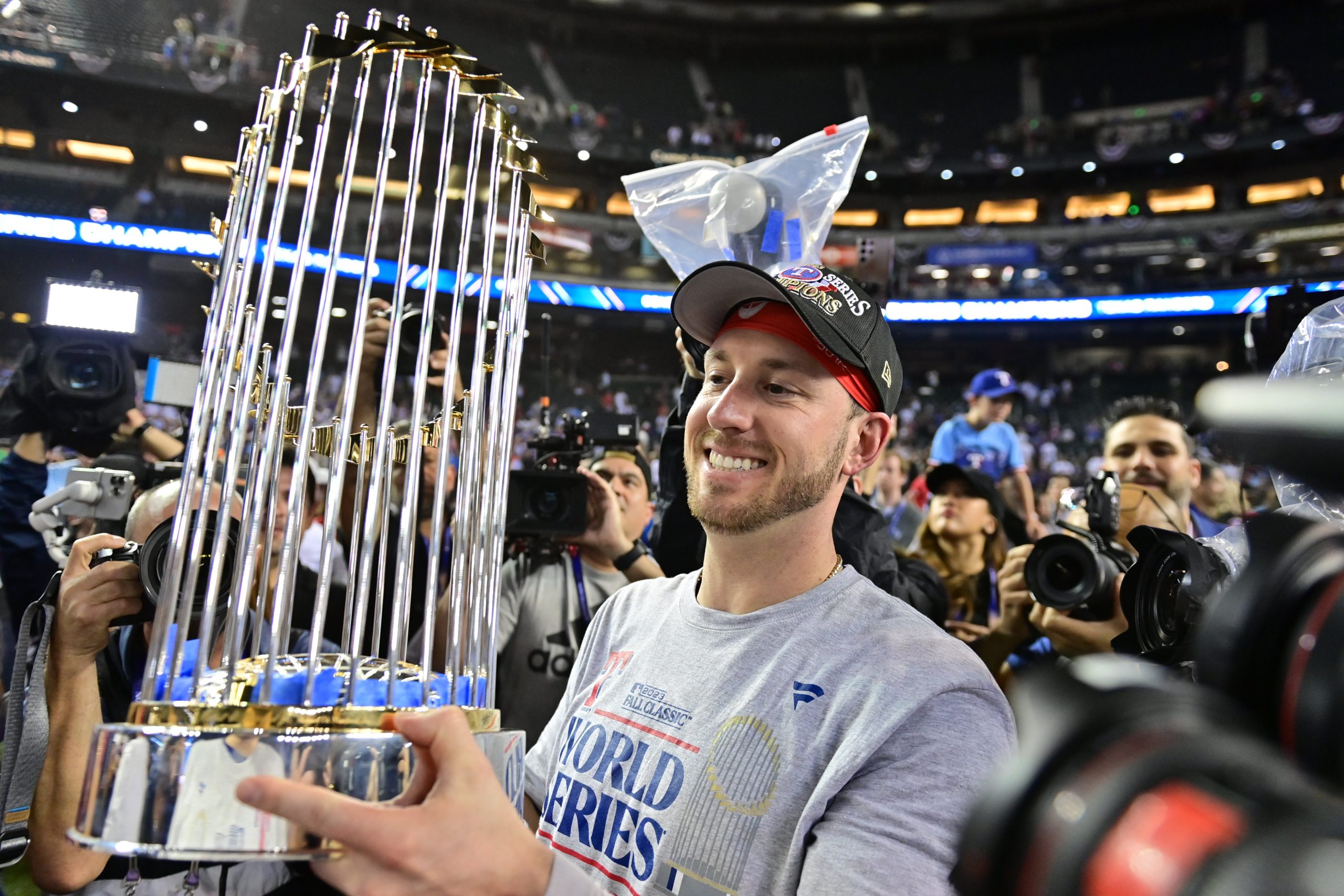
The Charlotte Hornets are a disaster.
Through four games of the NBA 2k24 Summer League, the Hornets are winless. Their point differential is -9 points, which is the third worst in the NBA.
On July 13, the Hornets announced that second-overall draft pick Brandon Miller has been sidelined for the remainder of the Las Vegas summer exhibitions. Before the 2023 NBA Draft, there was an ongoing debate about whether Charlotte should select Scoot Henderson instead of Miller.
The Hornets submitted their pick to be Miller, although Henderson was seen as the safest pick in the draft.
Following the Hornets’ pick, the Portland Trail Blazers capitalized on Henderson’s availability with the third pick.
The primary issue is beyond Charlotte’s inability to produce wins; it’s Miller. Across five games in both California and Las Vegas, Miller has averaged 15.2 points, 6.8 rebounds, and 3.4 assists.
In the California Classic, Miller showcased himself strongly by shooting 46.7% from the field and 44% from the three-point arc. However, in Las Vegas, that success did not translate; instead, Miller shot 35.4% from the field and 26.1% from deep in only three games.
In Miller’s last performance against the Blazers, he improved greatly, posting 26 points and six rebounds on 8–15 shooting from the field and hitting three of six shots from deep.
Honestly, that’s a massive sigh of relief for Charlotte.
The solid performance gave the Hornets a chance to pull the plug on Miller and remove him from the spotlight, which unfortunately caused spectators to scrutinize his game.
Now let’s get ahold of ourselves. It’s the Summer League, the same venue that has seen several talented young players cycle in and out that went on to become future busts. That’s part of the draft, and each franchise is gambling their rights to a certain prospect every year.
Unfortunately, the Hornets have missed the mark several times in the last 20 years.
Since 2004, Charlotte has only drafted two prospects that became All-Stars: Kemba Walker and LaMelo Ball, who were drafted in 2011 and 2020, respectively.
The reality is that Charlotte is a small market. Subsequently, the Hornets cannot compete to recruit massive talent via free agency like Los Angeles, Chicago, and New York can; that’s implausible.
Charlotte’s biggest free agent splash in recent memory was big man Al Jefferson. In four years with the Hornets, Jefferson claimed a respectable All-NBA Third Team nod in 2014 but was out of the NBA in less than five years.
Year in and year out, Charlotte has consistently missed the mark come draft day.
For example, the Hornets selected Shai Gilgeous-Alexander with the 11th pick in 2018 and immediately traded him to the Los Angeles Clippers for another prospect, Miles Bridges. Gilgeous-Alexander has risen to stardom, notching his first All-Star and All-NBA First Team honors this past season; meanwhile, Bridges spent the entire season serving a suspension for domestic violence charges.
The Hornets’ development department has been puzzling in years past because they have given limited minutes to young players in favor of veterans.
Every team does that to a degree, but for instance, Malik Monk spent his first four seasons in Charlotte and averaged only 18.2 minutes per game. After leaving the Hornets, Monk has seen an increase in minutes, points per game, field goal and three-point percentage, and assists because he’s playing more games.
Knowing Charlotte Miller will likely sit behind Bridges and split time off the bench with either Kelly Oubre Jr. or Gordon Hayward—don’t get me wrong, Oubre is a solid player, but Hayward shouldn’t be playing 31-plus minutes anymore.
Considering this year’s draft, one prospect has some serious upside: Nick Smith Jr. Before injuring his knee in December, the Arkansas guard was projected to be a top-five pick. However, Smith slid to the 27th pick, landing him in Charlotte.
Through six games this summer, Smith has averaged 14.3 points, 3.3 rebounds, and 3.1 assists per game, which is solid for a late first-round pick. Moreover, Smith exploded against Portland for 33 points while shooting 60% from the field and 80% from three.
Smith’s early production is a foretelling of his potential; however, Smith may be given the same shy attention Monk experienced with Charlotte.
Another example is guard James Bouknight, who was drafted 11th overall by the Hornets in the 2021 NBA Draft. Despite being a lottery pick, Bouknight has seen the court only 65 times and averaged 12.6 minutes in two seasons.
Unfortunately, one reason for the few minutes could be Bouknight’s subpar shooting. In two seasons, Bouknight has shot 35.3% from the field and 31.6% on the deep ball.
Those struggles have continued for Bouknight this summer, as he shot 38.4% from the field and 23.1% from three.
In retrospect, it seems that Charlotte has inadvertently wasted their pick on Bouknight, as the Hornets have selected a guard in the first round in three of the last four drafts. Especially because Bouknight is simply not getting many minutes outside of garbage time.
The Bouknight and Smith tandem couldn’t win against the New Orleans Pelicans in their last Summer League matchup, as the Hornets started the game by missing their first 14 shots. Subsequently, after starting the game down 18-0 and finishing the first quarter down 25-5.
As you’d imagine, the Hornets lost but not without a fight, falling short 89-83 as Bouknight posted 28 points thanks to going 4-9 from three.
Nevertheless, the Summer League is simply a glimpse, not anything more than a showcase for young talent to grow and show their respective teams what they have to offer.
Even the highly hyped first overall pick, Victor Wembanyama, struggled in his debut against the Hornets, ironically. The San Antonio Spurs only kept Wembanyama around for two games in the Las Vegas showcase.
Nevertheless, the NBA season will be right around the corner, and at least the Hornets can boast their $260 million extension with Ball, keeping him in the Queen City for the next five years.
The Hornets have the opportunity next season to snap their seven-year playoff drought, which is currently the longest in the NBA.



